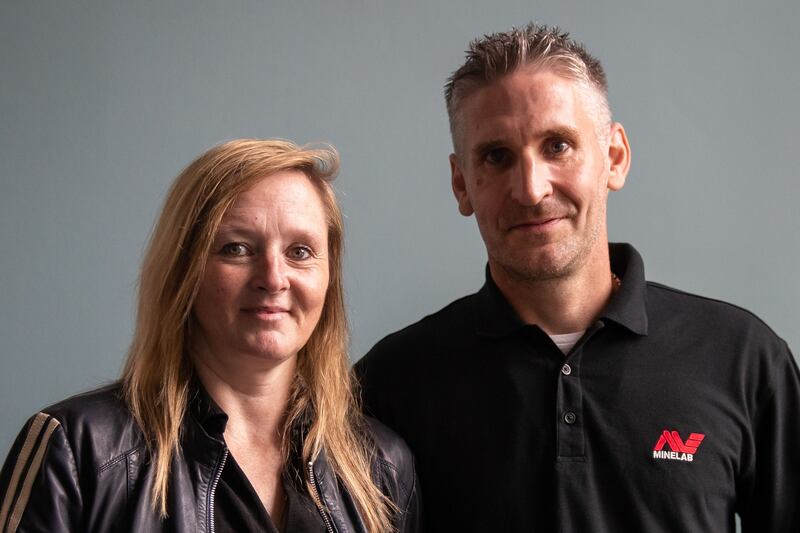WHEN Richard Gere went off script at the 1993 Oscars, Hollywood was quick to react.
While presenting the award for art direction, the Officer and a Gentleman actor – a practising Tibetan Buddhist and long-time friend of the religion's exiled leader, the Dalai Lama – took to the platform to protest at China's occupation of Tibet and its "horrendous human rights situation".
As a result, the then box-office heartthrob received a lifetime ban from entering China (the country finances much of Hollywood) and, until 2013, was banished by the Academy from taking part in the ceremony.
But the Philadelphia-born star, who's 67, wouldn't change a thing.
"It's important for everyone to speak out," he declares, having remained relentless in his support for the Tibetan Independence Movement. "Everyone has a platform. Even at the simplest level, you should vote... That's the best platform you have."
Buddhism helped him to realise his own responsibility: "Just living, it starts to emerge," he says. "And I think you can jump-start that a bit through really working with your mind, working with your heart, watching your mind. That evolutionary process can be sped up, so I highly recommend it to everybody."
Two decades on and Gere's forced move to less mainstream work could, in fact, have been a blessing in disguise. In 2017 alone he has landed some of the best reviews of his career, from indie movies Norman (The New York Times said he had "never been better") to Oren Moverman's The Dinner (Rolling Stone called the sibling rivalry drama an "all-star acting masterclass").
Yet his choices haven't changed since his 90s heyday opposite Julia Roberts in Pretty Woman, he argues.
"I never did big-budget movies. All of those early movies I made at Paramount were all small, interesting films, but the studios don't make those films any more, so these are all independently financed."
The appeal of Joseph Cedar's politically charged drama Norman was all in the character.
Charting the rise and tragic fall of a New York fixer, the humble movie follows Norman Oppenheimer (Gere), a would-be operator who spends his waking hours dreaming up financial schemes that never come to fruition.
"Part of [the draw] was I had no idea how I would play him," says Gere. "He was a character I had never read before, never seen before, and Joseph had written a completely unique and original Norman.
"The normal questions – 'What's his story? Where does he live? Who is his family? Does he have a wife? Does he have a child? – you would normally ask to play a character, became irrelevant with this guy. It was important just to believe whatever he was doing.
"The other interesting thing about him that I was keen to embrace, is that he has no darkness in him. There's no anger, no resentment. And that to me is completely unique in a human being."
The incessant networking and social climbing, however, Gere has seen before.
"You find guys like this circling the edges of every business, saying: 'What can I do to help you? I can get you a better table at that restaurant. I can get you a discount'. It's how Norman tries to make himself look valuable.
"I've lived in New York since I was 21. So there have been versions of Norman, certainly, swirling around my life for years, but I think every culture has a Norman. There's a centre of where the power is, or the money or the influence or whatever it may be, and there are Normans stalking around the periphery trying to get in."
But he's not a schmoozer himself, despite his years spent in the business.
"I was never good at that," he says. "I was too shy so I never could do it, but I'm trying to think if I am avoiding them. I just don't have that in my life; it's just not part of what my life is."
Does he have any regrets, anything he would tell his younger self?
"No," he says, with a laugh. "When I go to film festivals, quite often they'll very kindly give me some kind of career award and put together the 60 films, or whatever I've made, in five or seven or 10 minutes, which is basically my whole life.
"Of course, I am then flooded with the memory of making the films, but also who I was at that point."
These days, Gere's focus is on his son Homer.
"I just want him to be happy," he says of the 17-year-old, whom he shares with his second ex-wife, the model and actress Carey Lowell (Gere was also married to Cindy Crawford from 1991-1995 and has since found love with Spanish activist Alejandra Silva). "I want the best for him; that's all I think about."
And with no plans for his son to follow suit ("No interest whatsoever"), talk of his work rarely makes it home.
"He's only seen a couple of my films. We kind of laugh about it because it's just not part of our relationship. It's just what I do. It's my job, it's not my life. He's my life.
"I don't have to work, so the movies I do is because I enjoy it and I enjoy the camaraderie of it. I like groups of people making something creative, focusing and motivating, so you think you're trying to do something of value.
"I am amazed that I am still doing this, at this point. And I don't see any reason to stop."
:: Norman is in cinemas from Friday June 9.








